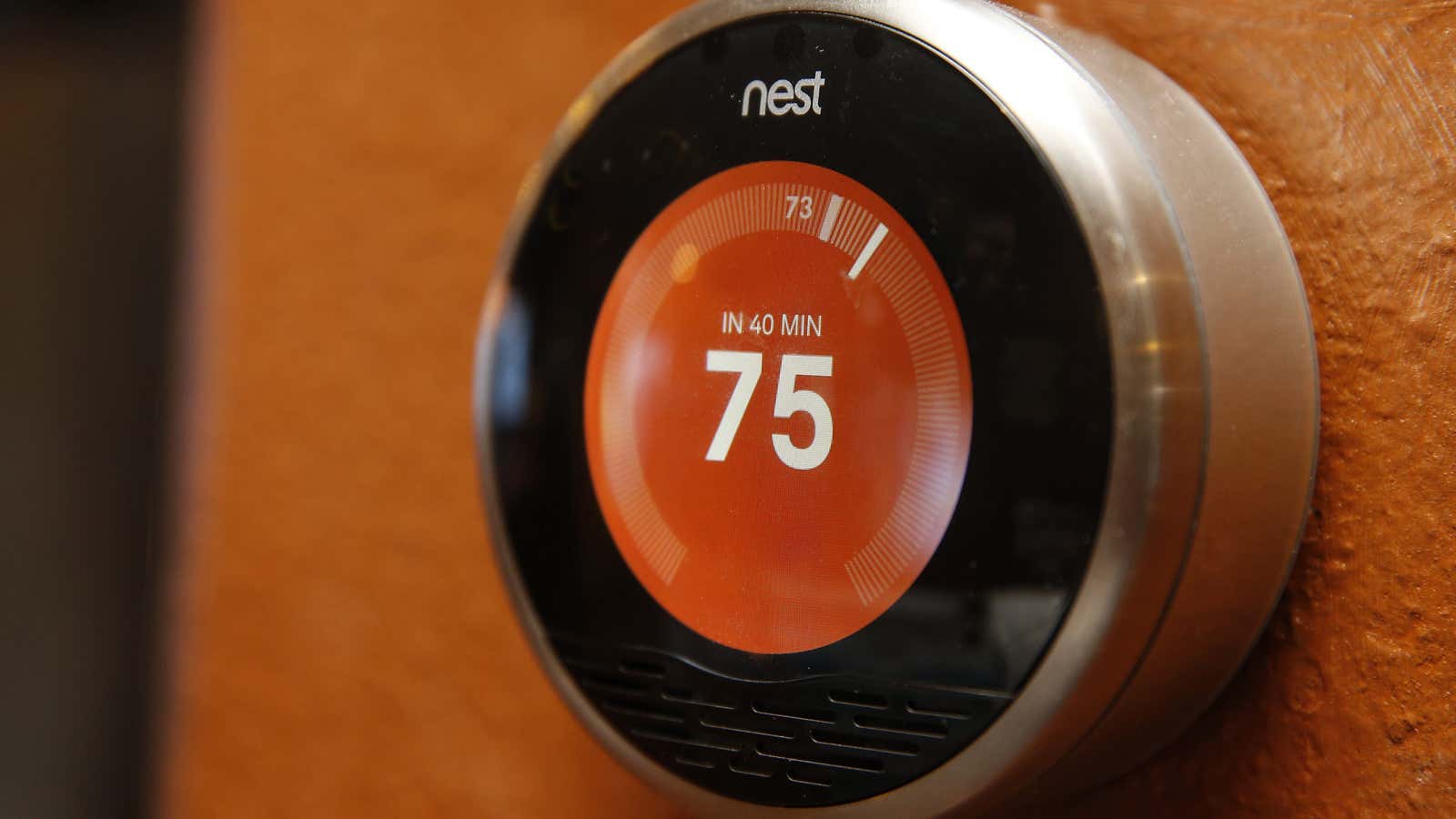Nest is returning to the, erm, nest.
The internet-connected devices company bought by Google for $3 billion in 2014 will be folded back into Google, the company announced today (Feb. 7). Since Google reorganized into Alphabet in 2015, Nest has existed as a separate company within Alphabet’s “Other Bets”—a group of companies that essentially aren’t Google, but that Alphabet thinks could one day be as important as Google.
Nest has dealt with issues since its acquisition. Its founder, iPod and iPhone designer Tony Fadell, left the company in 2016 after creating what was reportedly a “toxic” work environment; former employees also criticized his management style on Medium. The company also had a fallow period between 2015 and 2016 where it was producing few new products.
Nest’s current CEO, Marwan Fawaz, will now report to Rick Osterloh, a former Motorola executive who is overseeing Google’s fledgling hardware division. While Google has been making smartphones and other gadgets in small quantities for years, it only recently ramped up production of multiple Google-branded products, including the smart speaker Google Home, the Pixel notebooks and smartphones, Daydream VR headsets, and Chromecast streaming devices.
Nest’s products, including its thermostats, smoke detectors, and security cameras, already had deep integration with Google’s voice-assistant technology and Android operating system, but it seems likely that those ties will now deepen as the companies merge. According to CNet, the Nest branding isn’t going anywhere anytime soon, but it doesn’t seem crazy to envision a time when every piece of Google hardware is sold under its own name, in the interest of simplifying things for customers.
Fawaz told CNet that Nest has shipped more than 11 million products since 2011, when its first thermostat went on sale. As part of the Alphabet reporting structure, Nest hasn’t had to report sales. Under Google, it will be a part of “other revenues,” (i.e. everything that isn’t advertising, such as hardware, cloud services, and app sales).
Google may be hoping the restructuring will help it more effectively compete against smart-home market leader Amazon. And if this year’s Consumer Electronics Show was any indication—pretty much everything seemed to have “Hey Google” emblazoned on it—that competition is only heating up.




